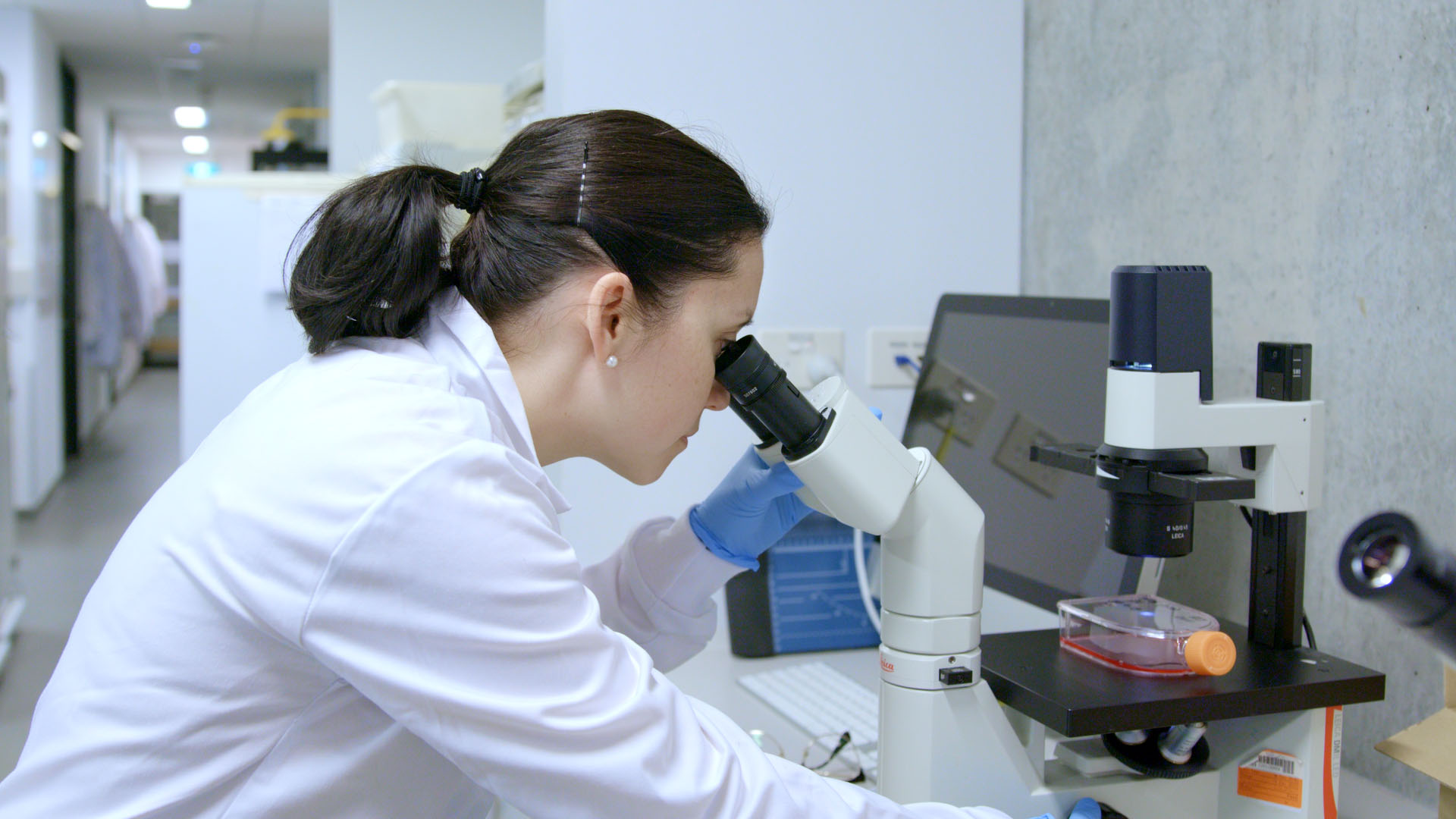Giving advanced lung cancer patients a better chance

Lung Cancer is common in Australia and the survival rates are poor. Every day, Dr Venessa Chin faces the dilemma of deciding which patients get which therapies.
She explains why receiving the De Angeli Cancer Research Grant from the St Vincent's Clinic Foundation enables her to combine cutting-edge technology to create an immune cell fingerprint that aims to personalise patient care and blow the lid wide open on lung cancer survival rates.
How did this research
proposal come about?
Although we have some tumour markers which help us decide
which treatments might be best for any given patient, these are far from
perfect. Immunotherapy is an active agent in lung cancer and can be given
alone, in combination with other agents including chemotherapy – all of which
are exceptionally expensive. Sadly,
there are no tumour markers which help clinicians decide which management
strategy is best. I’m hoping to develop
a test that uses immune cell technology to characterise a patient’s potential
to respond to immunotherapy – that way clinicians can use costly immune
therapies in a more economical way, and we can give patients the most effective
treatment straight out of the gate.
How does immune cell
sequencing work?
Single cell sequencing offers us unprecedented insight into
how the tumour and immune cells react to exposure to immunotherapy – we can
look at the cancer and immune cells in a patient on a cell-by-cell basis. We
will characterise how the immune cells look in terms of their ability to kill
cancer cells when they are taken from the patient (baseline) and then after
they have been exposed to immunotherapy agents (post treatment). I expect patients will be very individual in
their baseline and post treatment immune cell profiles – just like a
fingerprint.
How it works in the lab:
 Tumour specimens are collected from patients with advanced lung cancer
Tumour specimens are collected from patients with advanced lung cancer
 Specimens placed in petri dish and exposed to immunotherapy
Specimens placed in petri dish and exposed to immunotherapy
 Cells are analysed with single cell sequencer
Cells are analysed with single cell sequencer
 Immune cells are characterised based on how they react to immunotherapy
Immune cells are characterised based on how they react to immunotherapy
 Markers of response or resistance with be identified
Markers of response or resistance with be identified
What is the potential
impact of developing an immune cell fingerprint?
This work could predict which lung cancer patients are most
likely to benefit from immune therapy treatments. Essentially, by offering the most suitable
treatment options to patients at the start using this cutting edge technology
will improve their survival outcomes.
Stay up to date on Dr Chin's research and other projects we fund by subscribing to our mailing list: www.svcf.com/subscribe